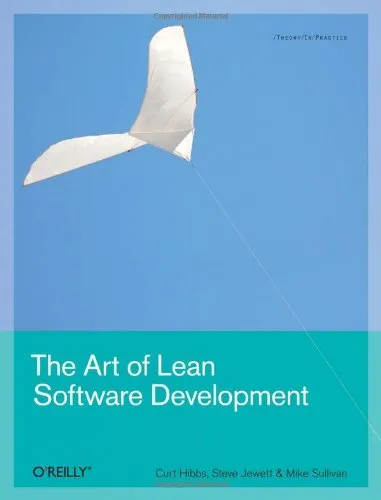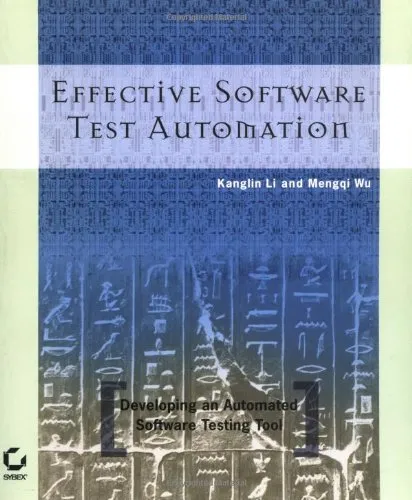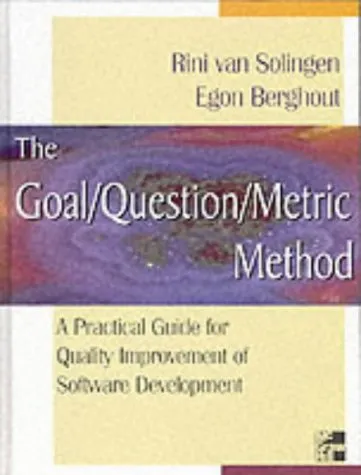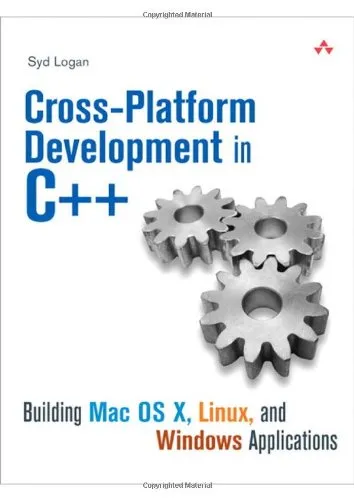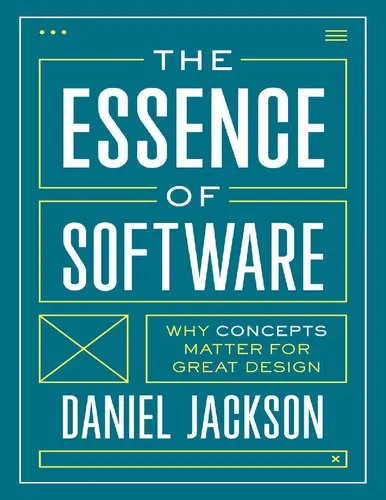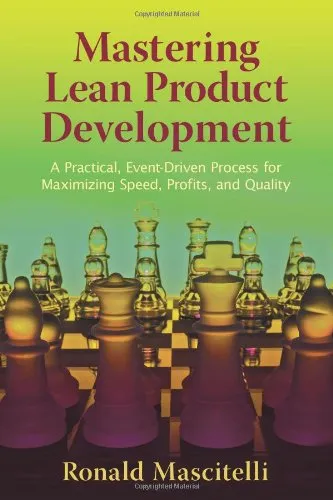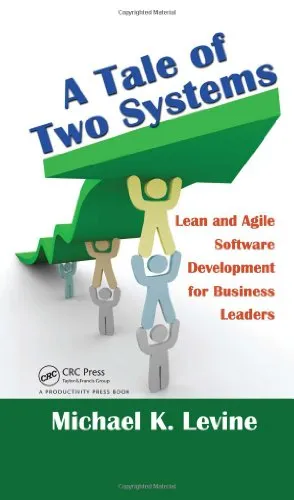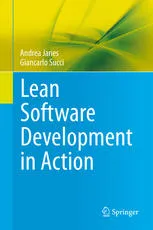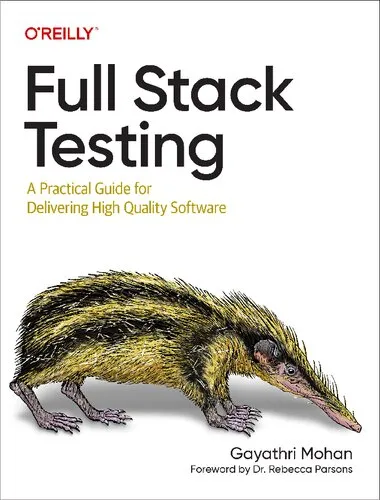The Art of Lean Software Development : a Practical and Incremental Approach
4.0
Reviews from our users

You Can Ask your questions from this book's AI after Login
Each download or ask from book AI costs 2 points. To earn more free points, please visit the Points Guide Page and complete some valuable actions.Related Refrences:
Introduction to "The Art of Lean Software Development: A Practical and Incremental Approach"
In today’s fast-paced software industry, achieving efficiency, maintaining quality, and delivering value are the cornerstones of a successful development process. "The Art of Lean Software Development" is a concise yet powerful guide designed to help software professionals adopt lean principles and practices in a way that emphasizes practicality, incremental delivery, and continuous improvement. Written by Curt Hibbs, Steve Jewett, and Mike Sullivan, this book distills the essence of lean thinking, a philosophy originating from manufacturing, and tailors it to the unique needs and challenges of software development teams.
This book is not a dry academic tome; it is a hands-on, approachable, and actionable resource that empowers teams to streamline their processes, minimize waste, and maximize customer satisfaction. Whether you're a developer, project manager, or an organizational leader, this book helps you focus on delivering high-quality, valuable software in an efficient, iterative manner by applying lean principles specifically to software development.
Detailed Summary of the Book
"The Art of Lean Software Development" provides a straightforward framework for software teams to improve their processes and product outcomes. It begins by introducing the fundamental principles of lean thinking, such as eliminating waste, amplifying learning, delivering as fast as possible, empowering the team, and building integrity into the product.
The authors use real-world examples and scenarios to explain how lean concepts like value-stream mapping and continuous improvement (kaizen) can streamline complicated workflows and help teams identify bottlenecks. The book explores the utility of incremental delivery as a way to give customers value sooner, while also allowing development teams to make rapid adjustments based on feedback.
Core lean techniques and tools such as kanban boards, visualizing work, limiting work-in-progress, and fostering a culture of collaboration and ownership across teams are discussed in depth. Additionally, the authors delve into the role of leadership in fostering a supportive environment where lean principles can thrive. By the end of the book, readers are equipped with a clear understanding of how to implement lean practices within their teams and organizations, even in highly dynamic and unpredictable contexts.
Key Takeaways
- Embrace lean principles to eliminate waste and focus on creating value.
- Use incremental delivery to provide continuous value to customers and respond to feedback efficiently.
- Leverage tools like kanban and value-stream mapping to visualize and optimize workflows.
- Cultivate a culture of continuous improvement through kaizen practices.
- Empower development teams to take ownership of processes and outcomes.
- Simplify complex systems by focusing on efficient design and constant iteration.
- Understand the role of leadership in sustaining lean principles and fostering innovation.
Famous Quotes from the Book
"The only software you need to build is the software that delivers direct value to your customer. Anything else is waste."
"Deliver as fast as possible, not because speed solves everything, but because speed creates opportunities to learn, adapt, and improve."
"Building the wrong features quickly doesn't help anyone; understanding what the customer truly values is the foundation of lean software development."
Why This Book Matters
As the software industry grows more competitive and user expectations reach new heights, developers and organizations must find ways to deliver value faster while maintaining high quality. This is where "The Art of Lean Software Development" plays a critical role. It equips teams with the tools and mindset necessary to cut through the noise, focus on what matters, and deliver meaningful results.
Unlike heavy frameworks or methodologies, lean software development takes a minimalist and adaptive approach to process improvement. This book helps readers focus on essentials, proving especially useful for organizations looking to reduce complexity, eliminate unnecessary overhead, and foster more effective team collaboration. Its emphasis on pragmatic, real-world applications rather than theoretical concepts makes it an indispensable resource for anyone involved in software delivery.
Moreover, with its brevity and clarity, the book avoids overwhelming readers with jargon, enabling them to start implementing lean practices immediately—step by step, and incrementally. As organizations strive to improve both efficiency and creativity, this book serves as a timeless guide that bridges theory and actionable insights.
Free Direct Download
You Can Download this book after Login
Accessing books through legal platforms and public libraries not only supports the rights of authors and publishers but also contributes to the sustainability of reading culture. Before downloading, please take a moment to consider these options.
Find this book on other platforms:
WorldCat helps you find books in libraries worldwide.
See ratings, reviews, and discussions on Goodreads.
Find and buy rare or used books on AbeBooks.
1253
بازدید4.0
امتیاز0
نظر98%
رضایتReviews:
4.0
Based on 0 users review
Questions & Answers
Ask questions about this book or help others by answering
No questions yet. Be the first to ask!
